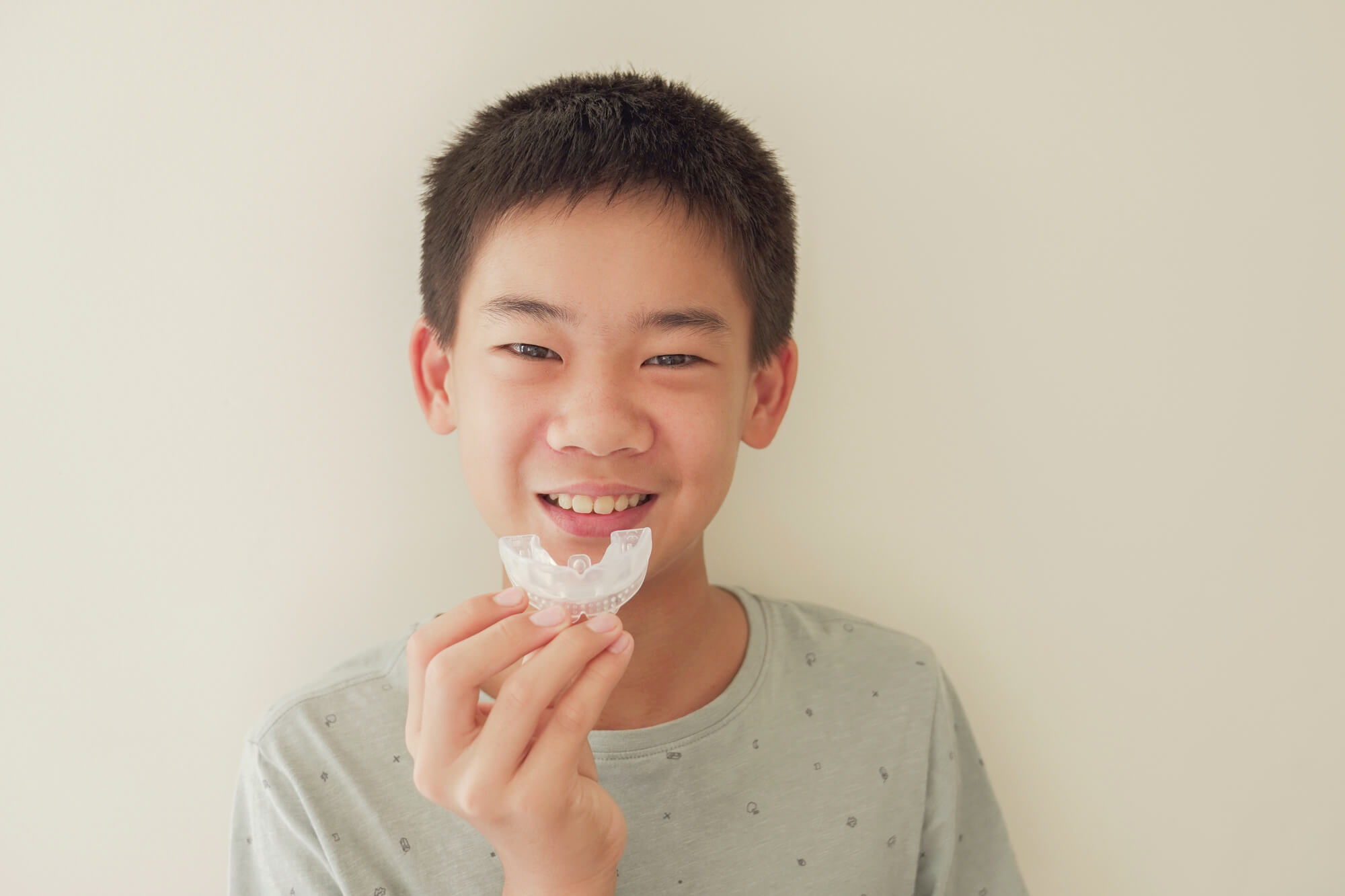Playing sports can be a healthy way for kids to stay active, learn the importance of teamwork, and, more importantly, have fun. Sports do, however, carry a small risk of dental injuries, which can have you making regular visits to a pediatric dentist in Cool Springs.
Still, as more children spend their youth indoors, playing with electronic devices, no pediatric dentist will oppose youth sports. To protect your child’s teeth while they enjoy their favorite activities, here are some tips, preventive measures, and first-response practices you should consider.

Why Is Teeth Protection Important?
Sports carry a significant risk of dental injuries, particularly contact sports like basketball, hockey, and football. Severe blows can cause chipped or broken teeth, knocked-out teeth, and damage to the gums.
The treatment for these dental injuries is costly and involves major operations, such as crowns, root canals, or even dental implants.
Moreover, if your child is undergoing an orthodontic treatment, accidents can result in major setbacks. A blow to the mouth can harm the braces, requiring reparations, more orthodontist visits, longer treatment periods, and additional expenses.
Besides the ones we listed, other typical dental injuries that can happen while playing sports are:
- Dental fractures: These can vary in severity from small chips to large cracks. They frequently result from direct hits to the mouth or face while playing contact sports like hockey, basketball, or football.
- Tooth Intrusion: This happens when a blow to the face pushes a tooth back into the jawbone. It’s an injury that’s more common in very young children with softer bone structures.
- Tooth Extrusion and Avulsion: An avulsion occurs when a tooth is knocked out completely, whereas an extrusion describes a partially dislodged tooth. Both wounds need to be seen by the dentist right away.
- Soft Tissue Injuries: Sports frequently result in cuts, bruises, and lacerations to the lips, cheeks, and tongue. If left untreated, these injuries can be excruciating and lead to infection.
- Jaw Fractures: When a person sustains a severe facial injury, such as a fractured jaw, they may need immediate medical attention as well as possibly surgery.
Preventive Measures to Protect Teeth
Serious dental injuries caused by playing sports can lead to complications such as infections, tooth loss, and even issues with jaw alignment. Still, forbidding your kid from playing sports is no solution.
So, what can you do to protect them while encouraging them to move and enjoy the outdoors?
1. Invest in a Quality Mouthguard
The most important thing to do is get a mouthguard for your kid, especially if the sport they play involves physical contact or the potential for falls. Mouthguards absorb impact that might break teeth or injure the lips, tongue, face, or jaw.
Furthermore, mouthguards have been demonstrated to lessen the chance of concussions. By acting as a shock absorber, the mouthguard lessens the force that an impact has on the head and jaw. This additional security is crucial in contact sports, where head injuries are a possibility.
Mouthguards are even more crucial for children wearing braces. To ensure a comfortable fit without damaging the orthodontic appliances, specially designed mouthguards are larger to accommodate the brackets and wires.
If your child does not have braces, a simple boil-and-bite mouthguard that fits their teeth works just fine. Sports goods stores generally offer these.

2. Address Injuries Promptly
Despite all safety measures, accidents can occur. If your child suffers any dental trauma, such as a knocked-out tooth or a loose bracket, taking quick action can often save a tooth or prevent further complications.
For starters, stay calm. Panic will make the situation worse for both you and your child. Next, ascertain the extent of the damage. If a tooth was knocked out, look for it. Grab it by its crown—the portion that is typically visible—and keep your hands away from the root. If it is dirty, give it a gentle water rinse; do not scrub or scrape off any tissue pieces.
If possible, try to reposition the tooth in its socket. If not, put it in a milk or saline solution container and visit the dentist right away.
Consider keeping a dental first aid kit in your child’s sports bag. The kit should include a small container for a knocked-out tooth, orthodontic wax, and pain relief options.
3. Follow-Up Care
See your child's dentist after an accident to ensure the wound heals properly and discuss any long-term issues that may arise. Regular dental checkups are essential for identifying possible problems early on.
If they have braces, orthodontic checkups should also be regular. Your child's teeth should be moving as planned, and the dentist or orthodontist can make sure that the braces are not interfering with the mouthguard.
4. Monitor Diet and Hydration
If your kid is playing sports, it’s easy to dismiss their diet and simply assume they’re healthy. However, the foods and drinks your child consumes while playing can significantly impact their dental health.
Sports drinks and sodas may be well-liked, but their high sugar content can damage dental enamel. Encourage your child to drink mostly water. If sports drinks are required, try to limit their use and have them rinse their mouth with water afterward.
Moreover, playing will open up their appetite. Choose healthy and braces-friendly snacks for your kids, such as cheese, carrots, and apples. These foods offer vital nutrients that support oral health and naturally clean teeth.
Pro Tip: Encourage Safe Play
Talk to your kids about the value of playing safely and according to the game's rules. This lowers the possibility of harm to their whole body and teeth.
.jpeg)
Protect Your Kid’s Dental Health with a Pediatric Dentist in Cool Springs
Taking care of your child’s teeth while they play sports doesn’t have to be challenging. With the right tools, habits, and awareness, you can help protect their smile both on and off the field.
These tips will help ensure their dental health stays in top shape throughout their athletic endeavors, helping to ensure they have a healthy smile that lasts a lifetime. Additionally, frequent dental visits are crucial to identify any issue early on. If you’re due to have a dental appointment at Happy Harpeth, reach out!





